7 Jan – 10 Apr 2022
Laiwan: Traces, Erasures, Resists
-
Laiwan
ArtistLAIWAN (b. 1961) is a cultural activist, interdisciplinary artist, writer and educator with a wide-ranging practice based in poetics and philosophy. Born in Zimbabwe of Chinese parents, her family immigrated to Canada in 1977 to leave the war in Rhodesia. In 1983, she graduated from Emily Carr College of Art and Design and founded the Or Gallery. She received an MFA from Simon Fraser University School for Contemporary Arts in 1999. Recipient of numerous awards, including the recent ECU Emily Award (2021), BC Arts Council (2021), Canada Council for the Arts (2020) and the Vancouver Queer Media Artist Award (2008), Laiwan serves on national and provincial arts juries and local community committees, including the Chinatown Legacy Stewardship Group and the City of Vancouver Public Art Committee. She exhibits regularly; curates projects in Canada, the US and Zimbabwe; and publishes in anthologies and journals. Her latest collection of poetry TENDER: selected poems (2020) is published by Talonbooks. Leading up to her project Distance of Distinct Vision (1992) and since then, Laiwan has been investigating colonialism toward a decoloniality. From 2000, she has engaged embodiment through performativity, audio, music, improvisation, with varieties of media, along with bodily and emotional intelligence, so as to unravel and engage presence. Recent public commissions have enabled her to focus on issues of urban development, touching on poetic and philosophic themes related to current questions of environment and the built cityscape of Vancouver. Based on the unceded territories of the Musqueam, Squamish, and Tsleil-Waututh First Nations, she teaches in the MFA Interdisciplinary Arts Program at Goddard College, USA (2001-present). www.laiwanette.netRead More
-
Amy Kazymerchyk
Guest CuratorAmy Kazymerchyk is a curator from Vancouver, BC. She has had a long-term investment in cinema as a formal, architectural and social ecology. She has held positions as the Curator of SFU Galleries’ Audain Gallery, the Events and Exhibitions Coordinator at VIVO Media Arts Centre, and Programmer of DIM Cinema at The Cinematheque. She has a Bachelor of Media Arts from the Emily Carr Institute of Art and Design and MA in Critical and Curatorial Studies from the University of British Columbia.
Read More
Laiwan: Traces, Erasures, Resists highlights the artist’s attention to the material and symbolic vocabularies of print and lens-based media between 1980 and 2000, and features her early interventions into the logic of the book form and the ideology of historical and encyclopedic genres. The exhibition title references processes related to printmaking, while at the same time speaking to the absent narratives, redacted perspectives and critical refusals that are latent in official publications.
The exhibition observes how literary structures are echoed in the apparatus of 35 mm slide, 16 mm film and analogue video projection. Laiwan’s moving image installations explore how this inheritance informs how we write and read images across mediums. For the exhibition, the Belkin is restoring now-obsolete media works such as African Notes (1982), The Language of Mesmerization / The Mesmerization of Language (1986), Travels in China, 1985 (1986) and MACHINATE (1999), which have not been exhibited since their inception.
Since the early 1980s, Laiwan has made a meaningful contribution to Vancouver’s cultural ecology through her engagement with artist-run centres – including as founder of the Or Gallery in 1983 – and her participation with numerous queer, feminist, multicultural and visual art print publications, notably with local activist collectives Angles and Kinesis, and as editor of Front Magazine from 1994 to 1997. In addition to the audio-visual works, Traces, Erasures, Resists presents Laiwan’s archive of public writing and community interventions.
The exhibition extends outside the Belkin with iterations of the work she who had scanned the flower of the world… appearing on the Belkin Screen and installed on the main floor of the Walter C. Koerner Library, 1958 Main Mall, UBC. Additionally, Laiwan’s work can be viewed at numerous arts and community organizations across the city and more widely; visit Outside the Belkin: Laiwan for details.
Read Amy Kazymerchyk’s curatorial essay.
Laiwan: Traces, Erasures, Resists is guest curated by Amy Kazymerchyk and made possible with the generous support of the Audain Foundation, the Canada Council for the Arts, the Province of British Columbia through the BC Arts Council and our Belkin Curator’s Forum members. This exhibition is part of the 2022 Capture Photography Festival Selected Exhibition Program. We actively acknowledge that the Morris and Helen Belkin Art Gallery is situated on the traditional, ancestral and unceded territory of the xʷməθkʷəy̍əm (Musqueam) People.
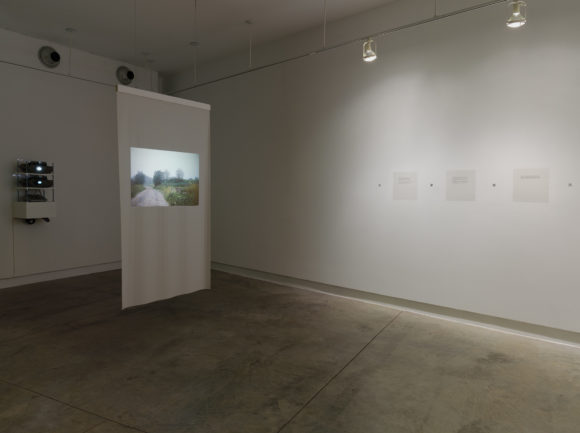
Both works courtesy of the artist.
Photo: Rachel Topham Photography.
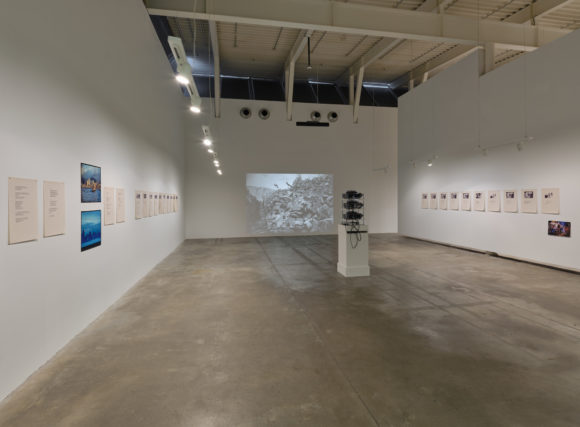
Photo: Rachel Topham Photography.
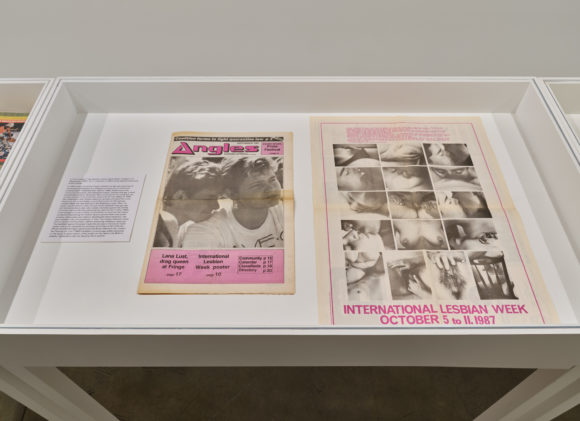
Collection of SFU Library Special Collections & Rare Books.
Photo: Rachel Topham Photography.
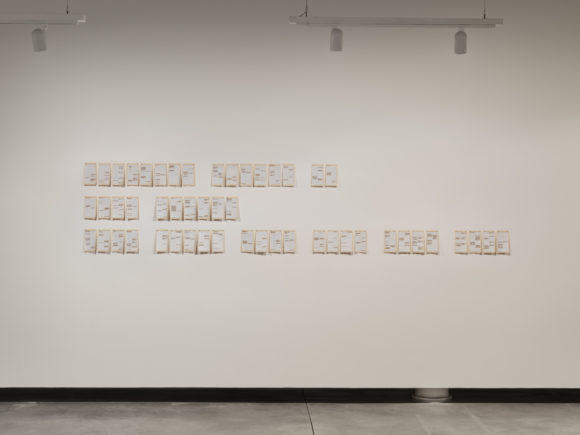
Courtesy of the artist.
Photo: Rachel Topham Photography.
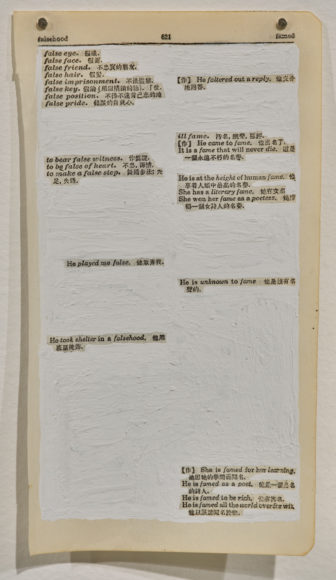
Courtesy of the artist.
Photo: Rachel Topham Photography.
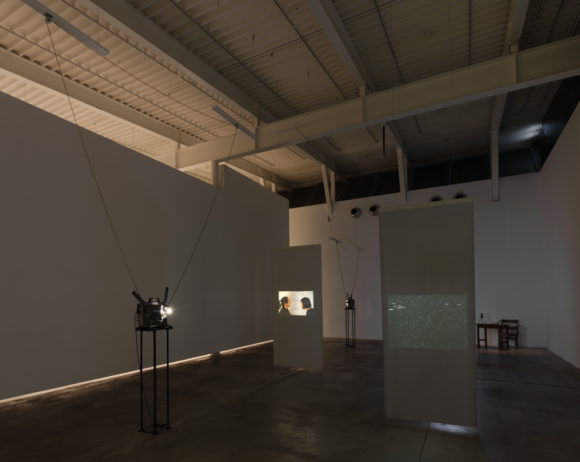
Courtesy of the artist.
Photo: Rachel Topham Photography.
Image (above): Laiwan, distance of distinct vision / point éloigné de vision claire (detail), 1992. Courtesy of the artist
-
Laiwan
ArtistLAIWAN (b. 1961) is a cultural activist, interdisciplinary artist, writer and educator with a wide-ranging practice based in poetics and philosophy. Born in Zimbabwe of Chinese parents, her family immigrated to Canada in 1977 to leave the war in Rhodesia. In 1983, she graduated from Emily Carr College of Art and Design and founded the Or Gallery. She received an MFA from Simon Fraser University School for Contemporary Arts in 1999. Recipient of numerous awards, including the recent ECU Emily Award (2021), BC Arts Council (2021), Canada Council for the Arts (2020) and the Vancouver Queer Media Artist Award (2008), Laiwan serves on national and provincial arts juries and local community committees, including the Chinatown Legacy Stewardship Group and the City of Vancouver Public Art Committee. She exhibits regularly; curates projects in Canada, the US and Zimbabwe; and publishes in anthologies and journals. Her latest collection of poetry TENDER: selected poems (2020) is published by Talonbooks. Leading up to her project Distance of Distinct Vision (1992) and since then, Laiwan has been investigating colonialism toward a decoloniality. From 2000, she has engaged embodiment through performativity, audio, music, improvisation, with varieties of media, along with bodily and emotional intelligence, so as to unravel and engage presence. Recent public commissions have enabled her to focus on issues of urban development, touching on poetic and philosophic themes related to current questions of environment and the built cityscape of Vancouver. Based on the unceded territories of the Musqueam, Squamish, and Tsleil-Waututh First Nations, she teaches in the MFA Interdisciplinary Arts Program at Goddard College, USA (2001-present). www.laiwanette.netRead More
-
Amy Kazymerchyk
Guest CuratorAmy Kazymerchyk is a curator from Vancouver, BC. She has had a long-term investment in cinema as a formal, architectural and social ecology. She has held positions as the Curator of SFU Galleries’ Audain Gallery, the Events and Exhibitions Coordinator at VIVO Media Arts Centre, and Programmer of DIM Cinema at The Cinematheque. She has a Bachelor of Media Arts from the Emily Carr Institute of Art and Design and MA in Critical and Curatorial Studies from the University of British Columbia.
Read More
Partners
Related
-
Publication
2024
Laiwan: Traces, Erasures, Resists
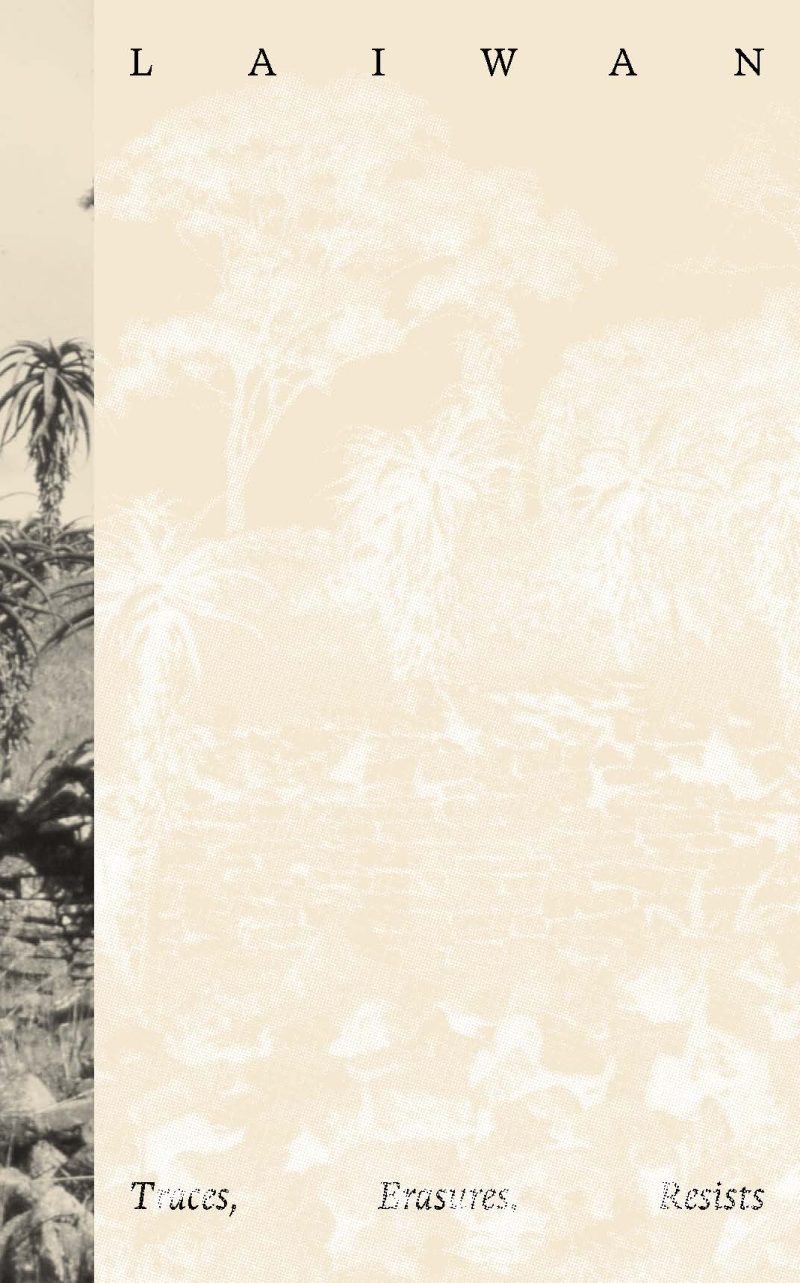 Exhibition catalogue from Laiwan: Traces, Erasures, Resists at the Belkin (7 January-10 April 2022) curated and edited by Amy Kazymerchyk with essays and interviews by Laiwan, Olivia Michiko Gagnon, Amy Kazymerchyk, Missla Libsekal, Liz Park, Anne Riley, Scott Watson and Rita Wong. [more information and purchase]
Exhibition catalogue from Laiwan: Traces, Erasures, Resists at the Belkin (7 January-10 April 2022) curated and edited by Amy Kazymerchyk with essays and interviews by Laiwan, Olivia Michiko Gagnon, Amy Kazymerchyk, Missla Libsekal, Liz Park, Anne Riley, Scott Watson and Rita Wong. [more information and purchase] -
Tour
SATURDAY 15 JAN 2022, 2-3:30 PM
Artist and Curator Tour: Laiwan and Amy Kazymerchyk
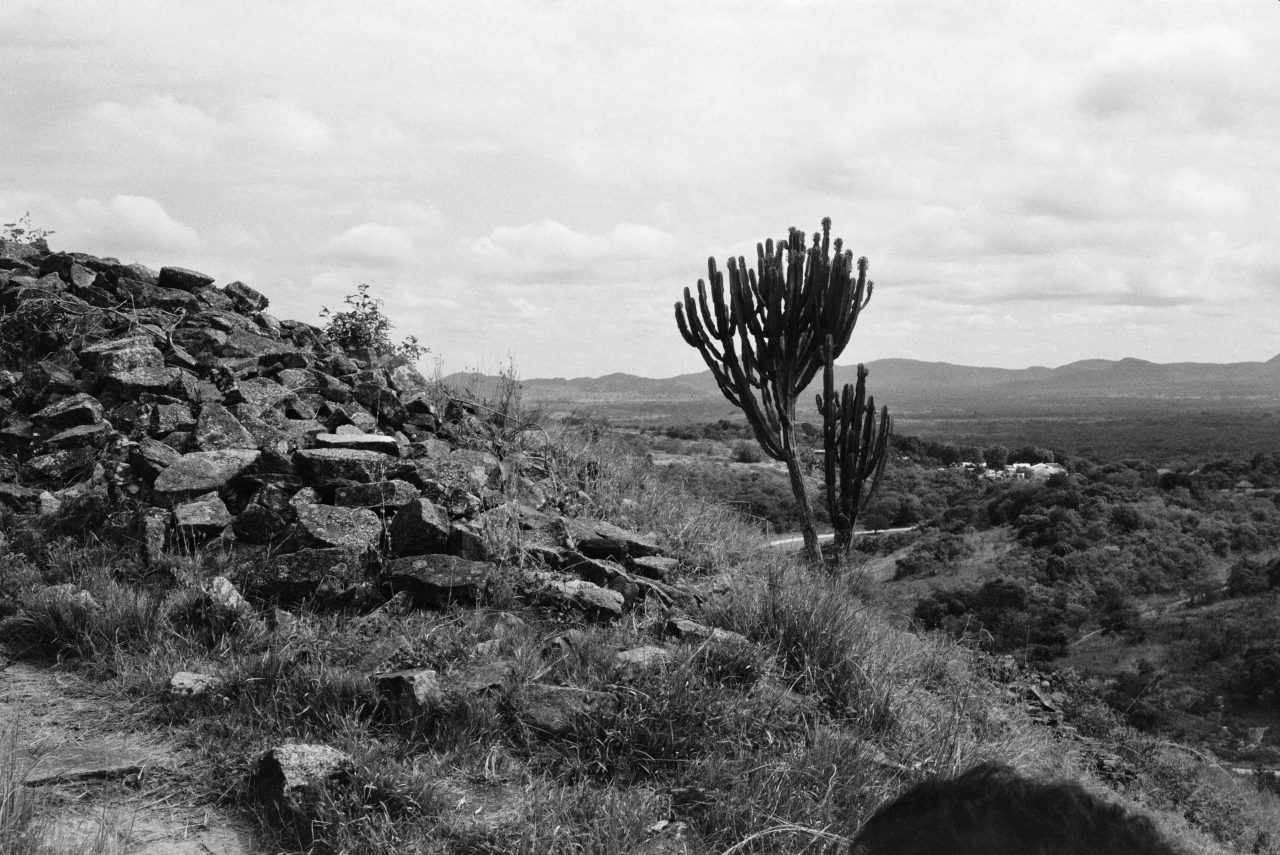
On January 17, Laiwan and curator Amy Kazymerchyk walked through the Belkin discussing their exhibition Laiwan: Traces, Erasures, Resists. The two touched on the latent traces, erasures and resists in the artistic and curatorial processes behind the exhibition. While the tour was to take place in front of a live audience, COVID-19 restrictions required that the conversation take place behind closed doors.
[more] -
Event
SATURDAY 19 March 2022 from 2-4 pm
Reception and Launch: Laiwan and TCR

Please join us for a reception to celebrate Laiwan’s exhibition Traces, Erasures, Resists, guest curated by Amy Kazymerchyk, which opened quietly in January without fanfare due to BC’s provincial health orders in response to COVID-19. This afternoon event is also a moment to launch The Capilano Review’s 50th anniversary series that features Laiwan’s AGILE (2021), a work commissioned by TCR for this first of three commemorative glossaries.
[more] -
Event
Thursday 24 Mar 2022, 6:30 pm
Film Series: Traces and Intervals
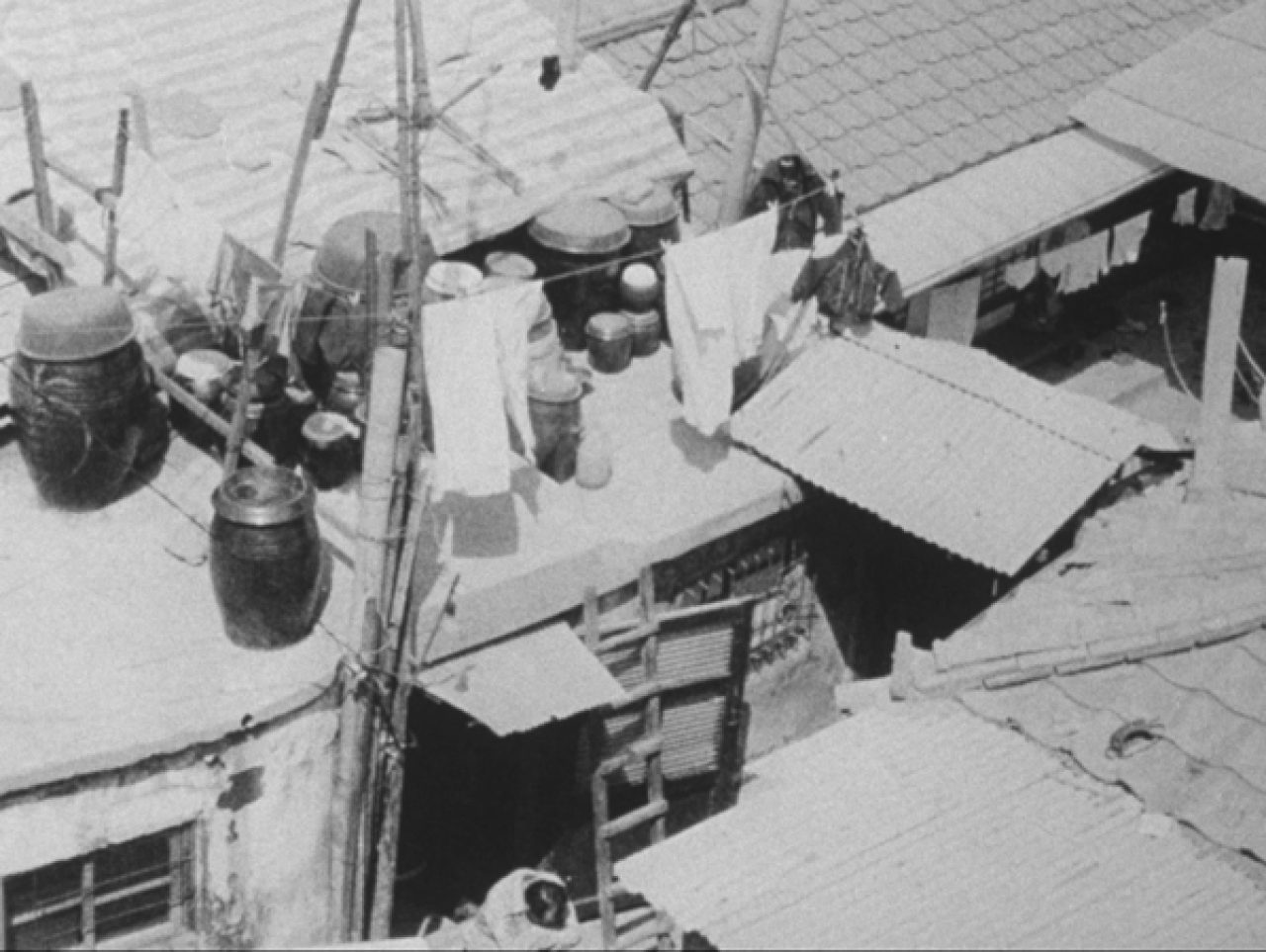
On the occasion of the exhibition Laiwan: Traces, Erasures, Resists, the Belkin in collaboration with The Cinematheque presents the film series Traces and Intervals. Laiwan’s Belkin exhibition highlights her works in print and lens-based media since the 1980s alongside her contributions to activist collectives and publications in Vancouver that include numerous film programs and reviews. Traces and Intervals features films by artists Theresa Hak Kyung Cha, Trinh T. Minh-ha and Midi Onodera, who, like Laiwan, were working in conceptual and formal processes in the early 1980s that sought to intervene stereotypical expectations of identity through a destabilization of language, and a deconstruction of cinematic form.
[more] -
Event
On site mini tours: Sunday 20 Feb 2022
Online videos and virtual art activity: Sunday 20 Feb - Sunday 28 Feb 2022
Kids Take Over UBC: Tracing, Erasing, Resisting

Celebrate Family Day this year with a take-home art activity inspired by drawing techniques used by artist Laiwan in our current exhibition Laiwan: Traces, Erasures, Resists. Interested in learning more in person? Visit the Belkin for a short, kid-friendly tour that highlights two of the artist's works.
[more] -
Tour
Tours: Laiwan: Traces, Erasures, Resists
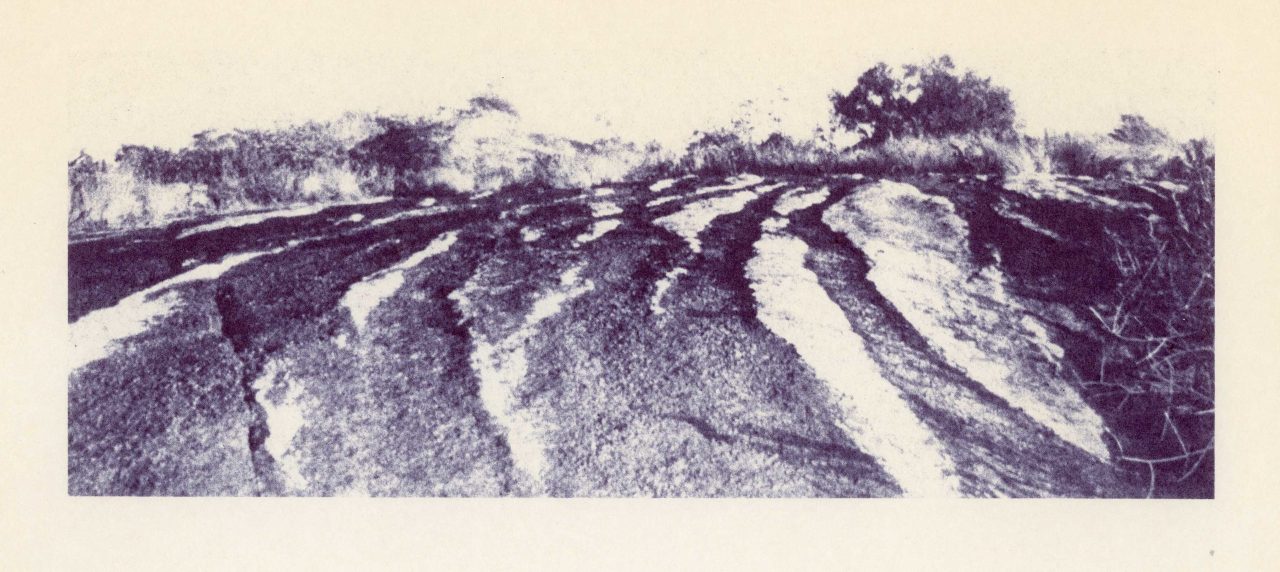
Tours and discussions of Laiwan: Traces, Erasures, Resists can be arranged according to current COVID-19 safety protocols from Tuesday to Friday for groups and classes, lasting 50 minutes and longer. For more information, please contact Belkin Public Programs by email at belkin.tours@ubc.ca or by phone at (604) 822-5600.
[more] -
Event
Wednesday 6 Apr 2022, 2 pm
Concert at the Belkin: Laiwan: Traces, Erasures, Resists
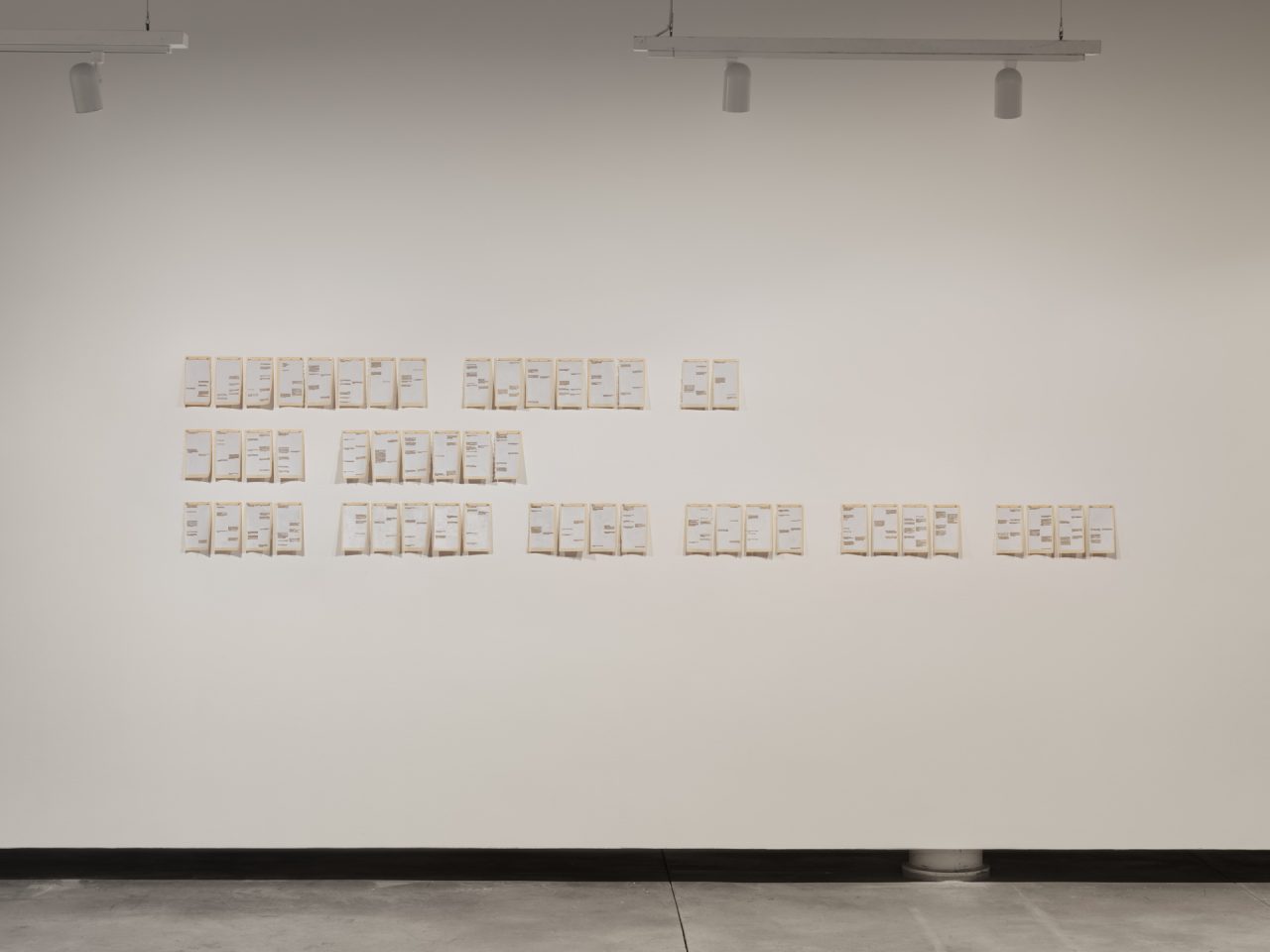
Join us for a concert by the UBC Contemporary Players directed by Paolo Bortolussi in a program that celebrates the Belkin’s current exhibition, Laiwan: Traces, Erasures, Resists.
[more] -
Event
Outside the Belkin: Laiwan
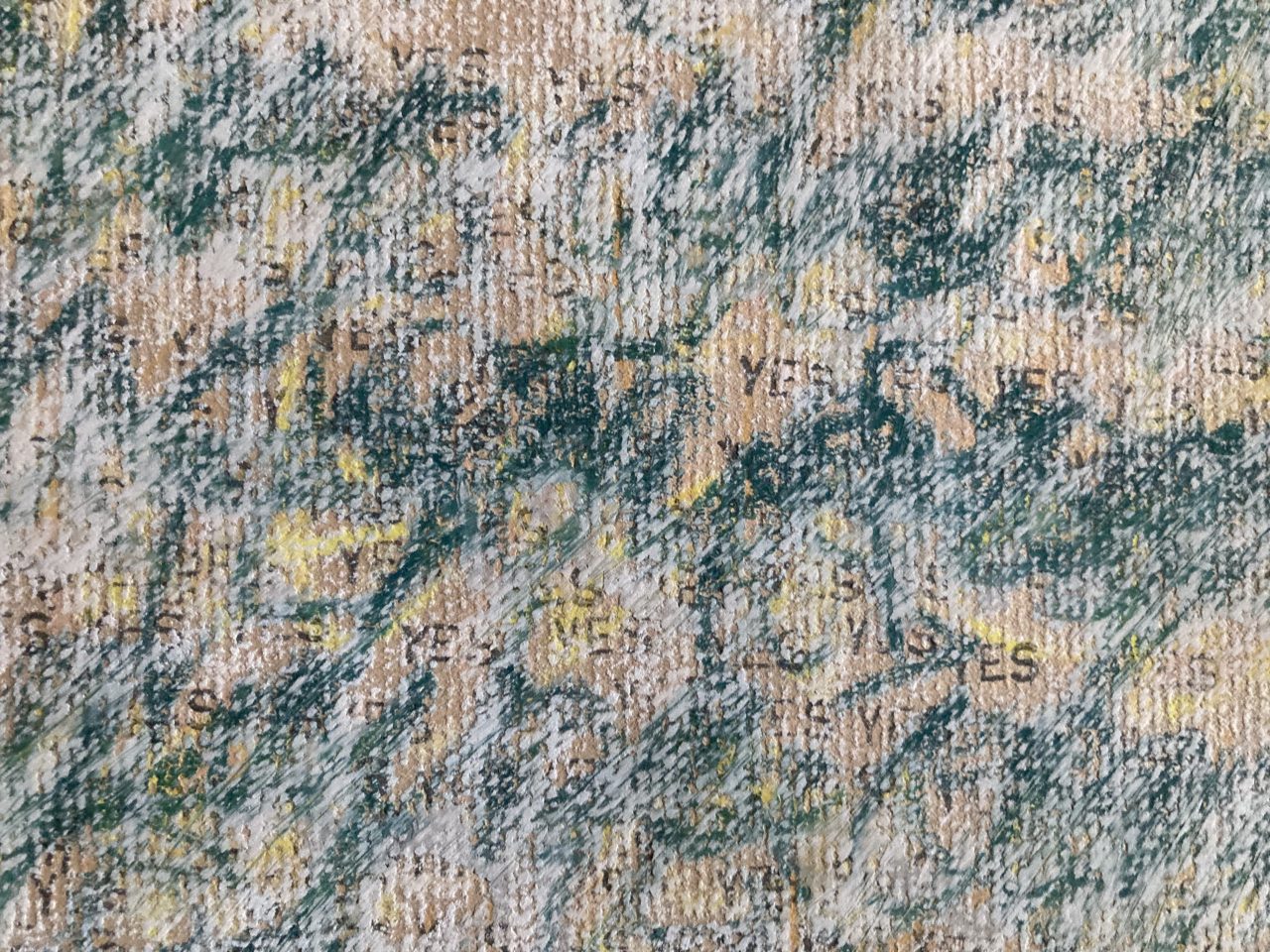
Over the course of her career, Laiwan has nurtured extended connections to many arts and community organizations across the city through her engagement with artist-run centres and her participation with queer, feminist, multicultural and visual art print publications. As a way of honouring and highlighting these relationships, the Belkin is cross-promoting events that Laiwan is engaged in across the city and more widely. This list is growing and changing; check often for updates.
[more] -
Exhibition
7 JAN – 10 APR 2022
Outdoor Screen: Laiwan
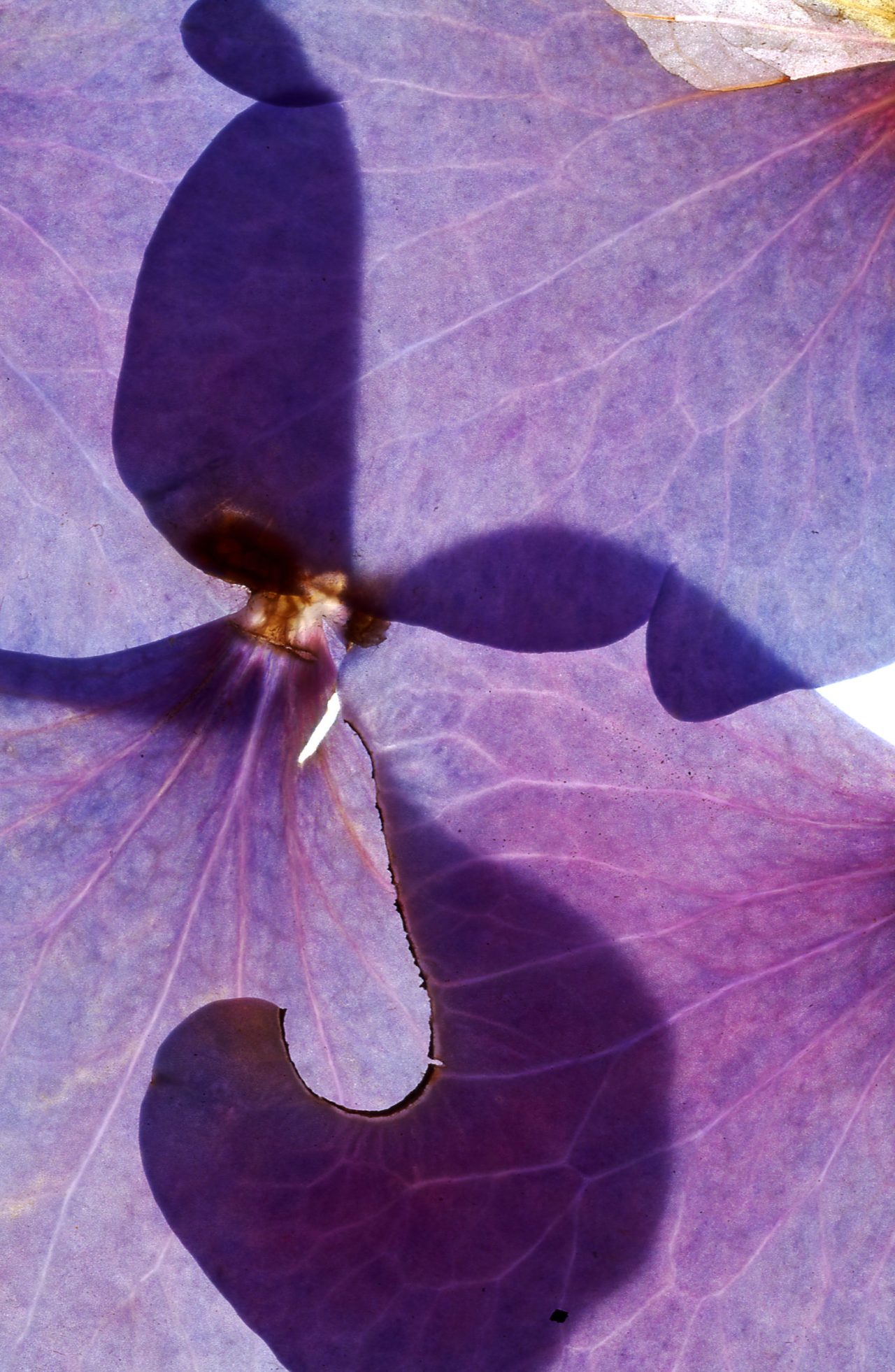
From January to April, the Belkin's Outdoor Screen sets a number of works in relation to one another, drawing associations between the exhibition Laiwan: Traces, Erasures, Resists in the gallery, the longterm artist's residency in the Outdoor Art program and the affinities to be found with research partners on campus.
[more] -
Exhibition
7 JAN – 10 APR 2022
Reading Room: Laiwan
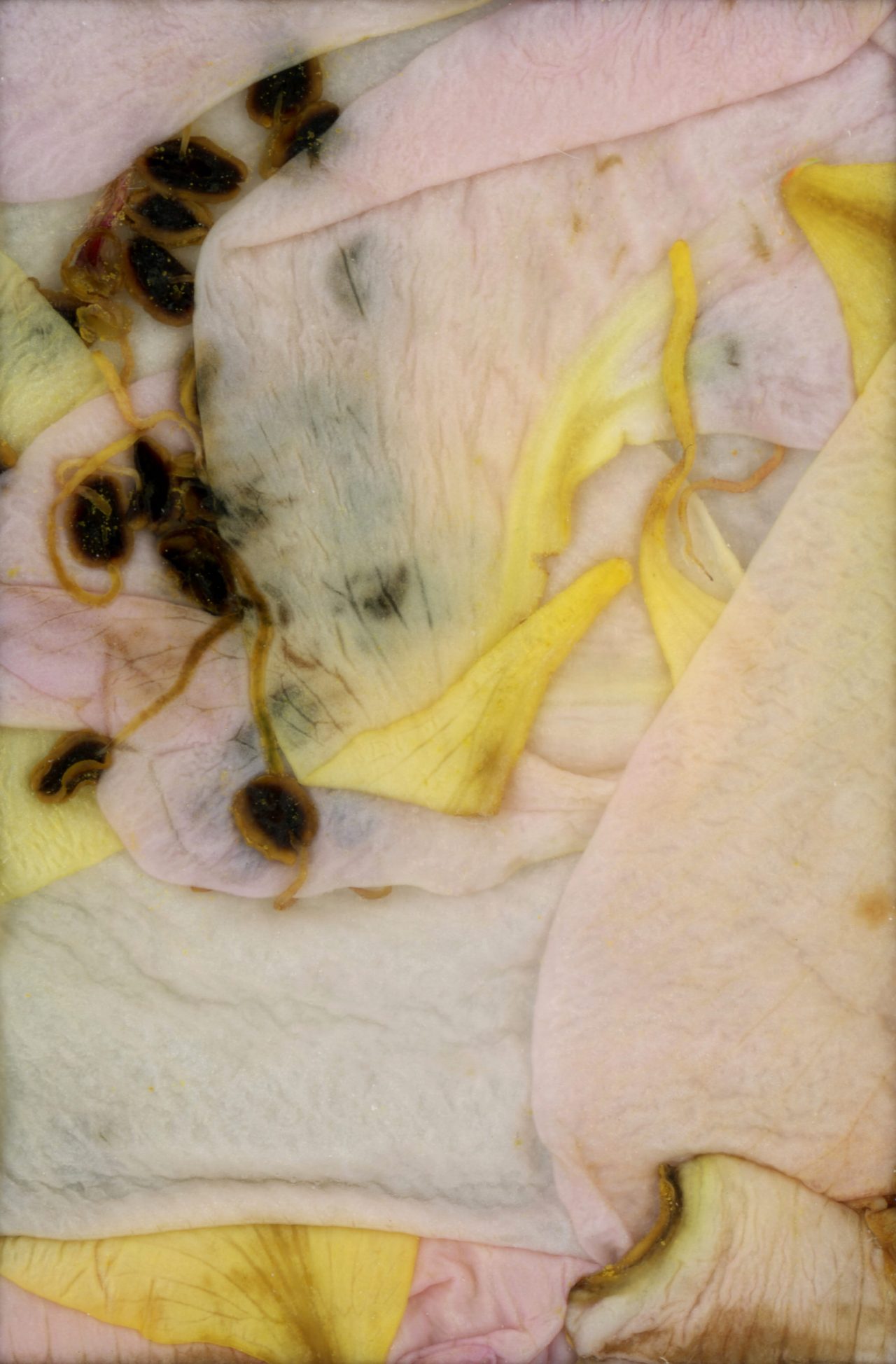
Laiwan: Traces, Erasures, Resists highlights the artist’s attention to the material and symbolic vocabularies of print and lens-based media between 1980 and 2000, and features her early interventions into the logic of the book form and the ideology of historical and encyclopedic genres. Since the early 1980s, Laiwan has made a meaningful contribution to Vancouver’s cultural ecology through her participation with numerous queer, feminist, multicultural and visual art print publications. In addition to the audio-visual works, Traces, Erasures, Resists presents Laiwan’s archive of public writing and community interventions. In addition to showing these writings and works in the gallery, the Belkin includes here a selection of the artist's writings for the duration of the exhibition.
[more] -
News
18 Jan 2022
Laiwan: Resources for Research

The following are resources related to the artists in Laiwan: Traces, Erasures, Resists. This list is not exhaustive, but rather comprised of suggested readings compiled by researchers at the Belkin. These readings are intended to provide additional context for the exhibition and act as springboards for further research or questions stemming from the exhibition, artist and works involved. Following the introduction, resources are arranged along the themes of traces, erases and resists as explored through and adjacently to Laiwan’s work. This compilation is an evolving and growing list, so check back in the future for more additions.
[more] -
News
03 Mar 2021
Works from the Collection: Laiwan
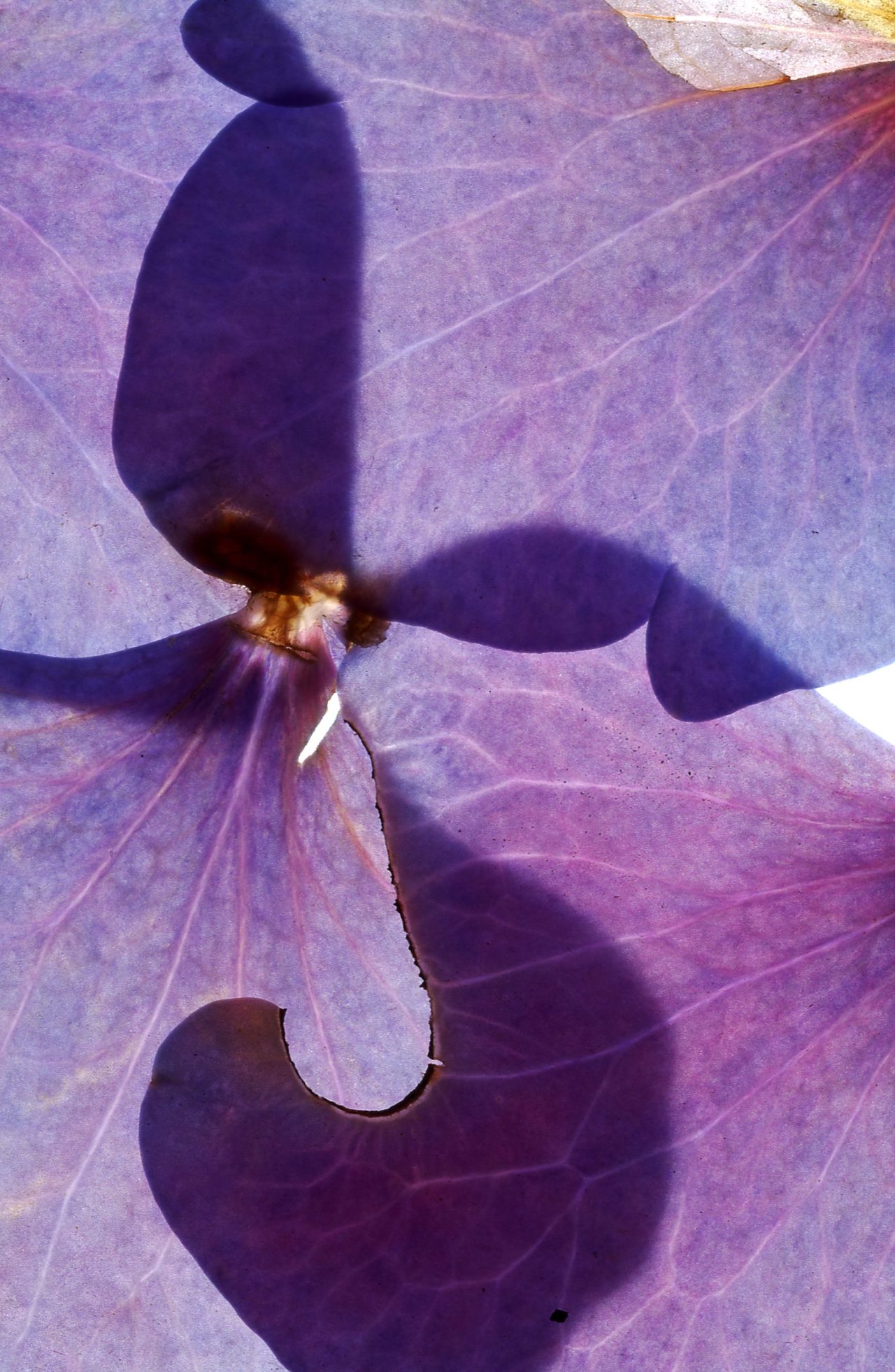
Laiwan writes, "Begun in 1987 investigating the questions, What is an image? What is a photograph?, she who had scanned the flower of the world... is an ongoing project where I collect flowers from the city I am showing in, placing the petals into slide mounts."
[more] -
News
06 Jan 2022
Works from the Collection: Laiwan’s African Notes
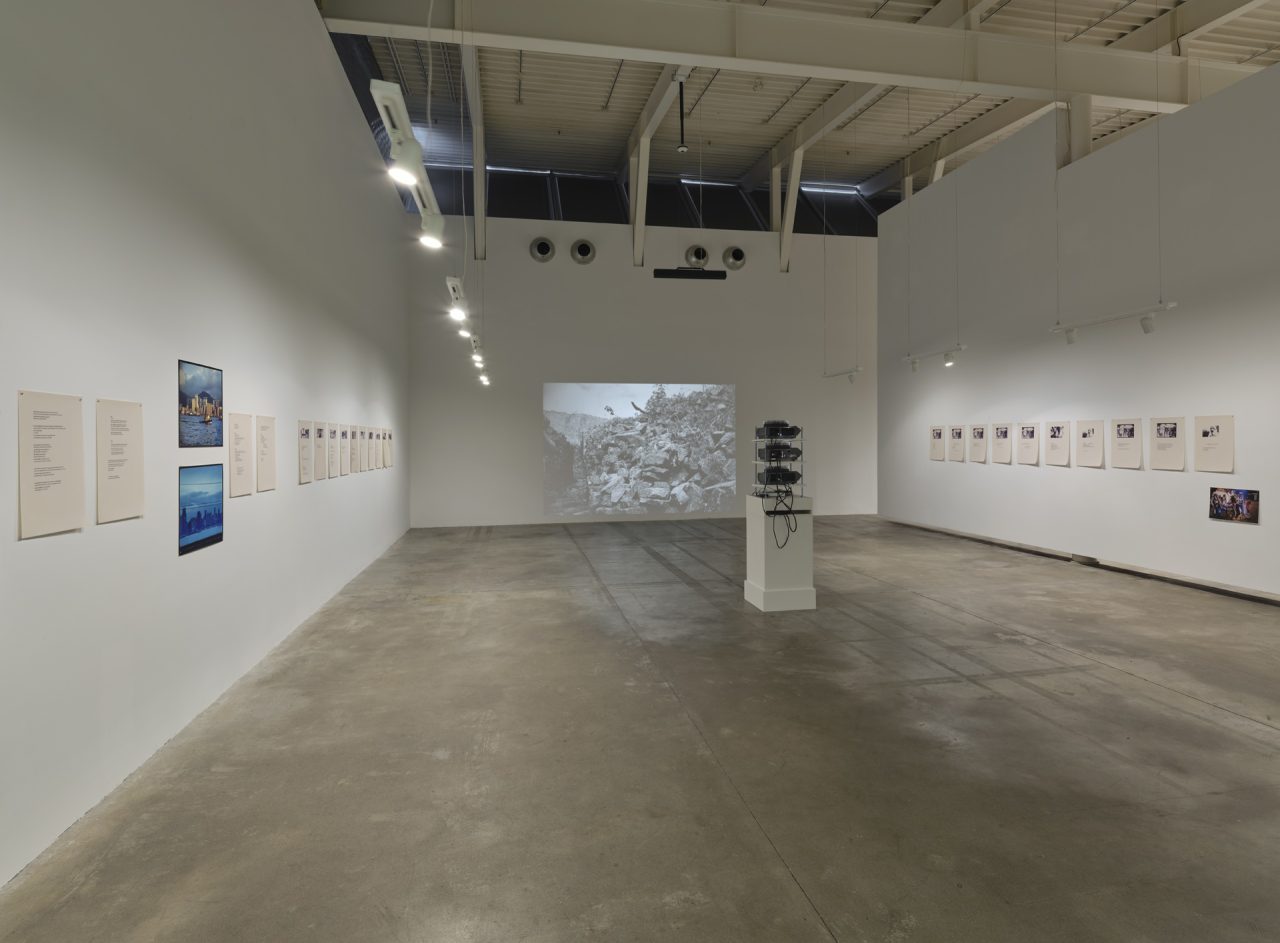
African Notes Parts 1 and 2 are composed of photographs that Laiwan took on a trip home to her birthplace of Zimbabwe in 1982, two years after the country’s independence.
[more]
